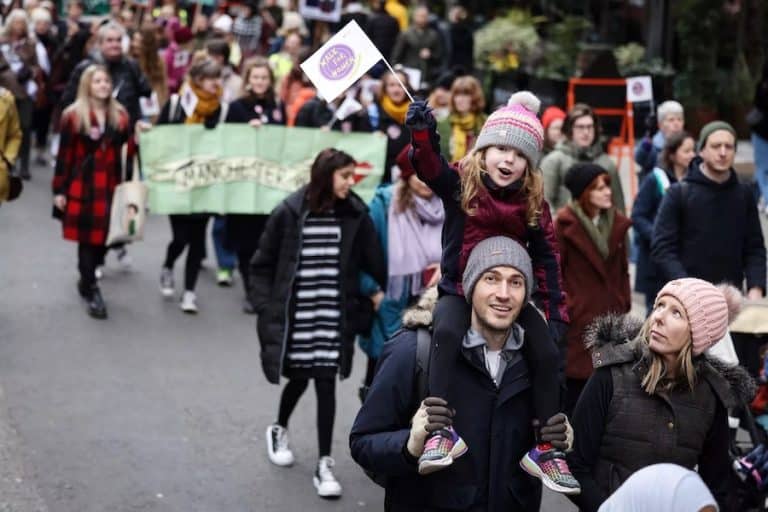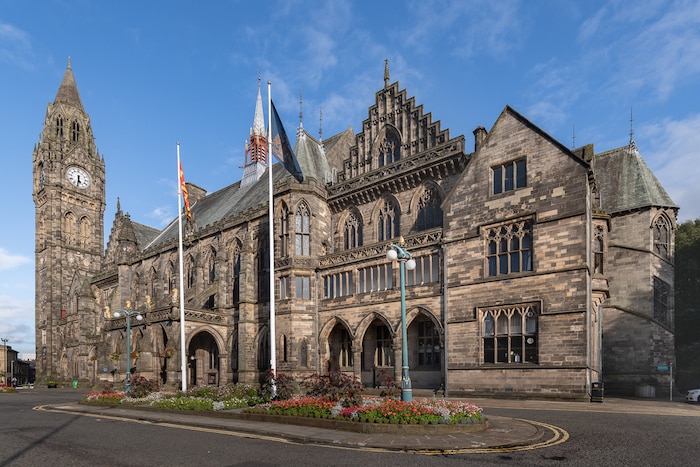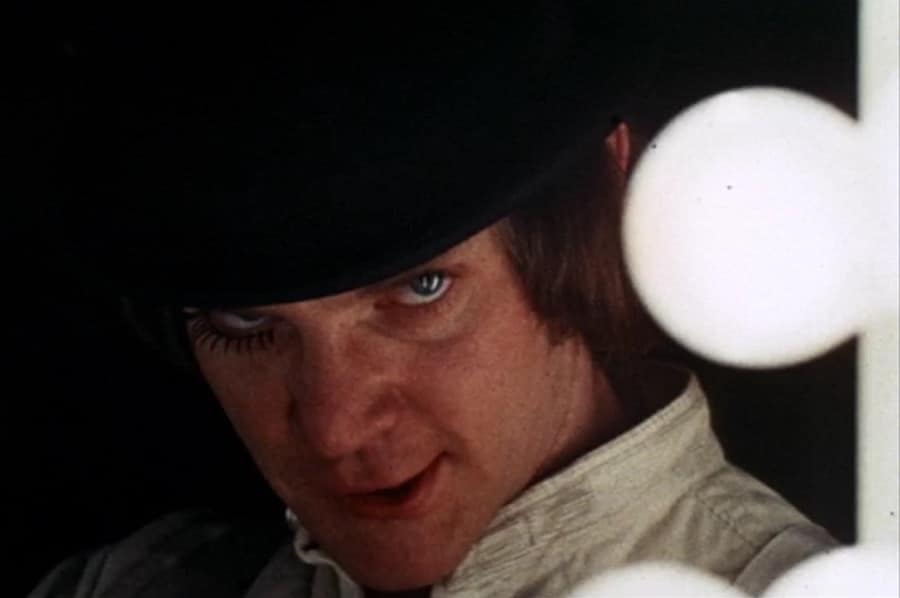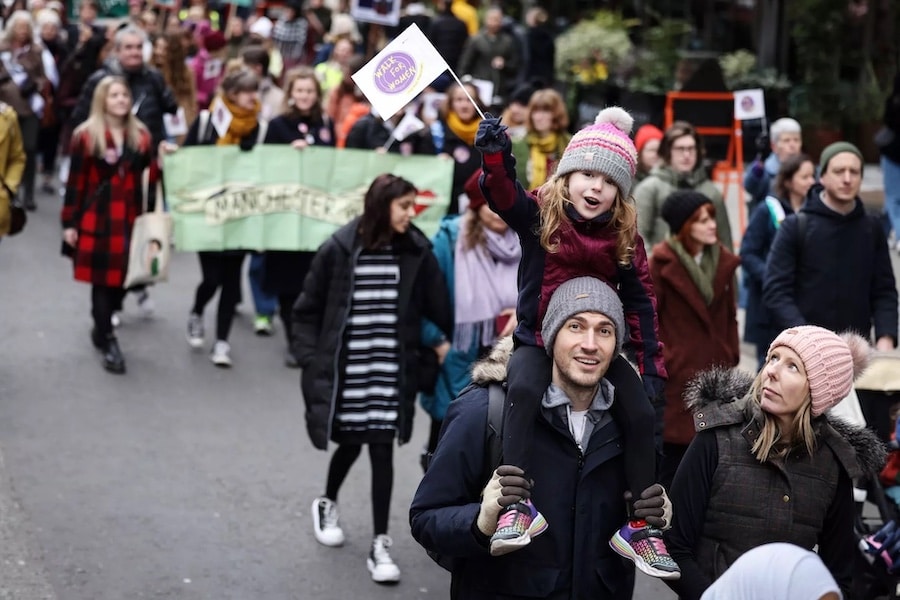Here’s the latest update on Manchester’s Clean Air Zone charges
- Written by Thom Bamford
- Last updated 1 year ago
- Community, Featured, People
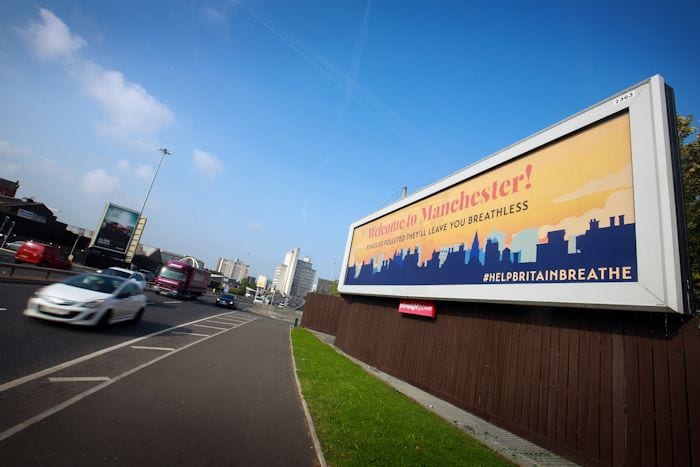
In a groundbreaking move, Greater Manchester is set to unveil a £86.7 million investment plan aimed at swiftly addressing the region’s air quality concerns.
The innovative strategy focuses on bolstering the transformative Bee Network, upgrading taxis, and implementing traffic flow measures.
They have said they will not be implementing a Clean Air Zone charge, if the government accept their new proposal.
Andy Burnham has said increasing investment in buses and taxis would cut pollution more effectively.
No Charges for Vehicles in Clean Air Zone
Under this preferred non-charging plan, no vehicle would face charges to travel through Greater Manchester’s Clean Air Zone.
The Council say this is demonstrating a commitment to meet the government’s legal directives without jeopardising jobs and livelihoods.
They added that evidence strongly suggests that this investment-led approach is the most effective in achieving compliance by the 2026 deadline.
How can Manchester improve air quality?
New modelling reveals that Greater Manchester’s non-charging plan, fueled by an £86.7 million investment, can bring nitrogen dioxide levels within legal limits on local roads by 2025.
This outpaces the projected timeline of a charging Clean Air Zone in the city centre, showcasing the urgency and effectiveness of the proposed strategy.
Will the Bee Network Expand?
As Greater Manchester prepares to submit evidence supporting its investment-led plan, the region is already witnessing the benefits of the Bee Network.
The recent return of bus services under local control has facilitated the introduction of zero-emission electric buses, contributing to a cleaner and more efficient public transport system.
A Breakaway from Convention
On Wednesday, Andy Burnham unveiled proposals for a non-charging clean air zone in Greater Manchester, aiming to boost electric buses from 85 to 199 next year and provide taxi grants from a £22.5m fund.
This approach differs from London’s strategy, where non-compliant vehicle charges were implemented in 2015 under Boris Johnson, contrasting with the expanded ultra-low emission zone covering all of Greater London initiated by Sadiq Khan this year.
The introduction of clean air charging zones has also occurred in various cities like Bath, Birmingham, Bradford, Bristol, Portsmouth, Sheffield, and Tyneside, each imposing daily charges for non-compliant vehicles.
Mayor Andy Burnham
Mayor Andy Burnham emphasised the region’s commitment to air quality improvement, urging the government to consider supporting Greater Manchester’s investment-led plan.
Burnham emphasised that accelerating Bee Network investment and upgrading taxis can enhance air quality faster than implementing a charging Clean Air Zone, without imposing hardships on residents and businesses.
Stopping Manchester’s Clean Air Charges
In February 2022, Greater Manchester’s planned charging clean air zone was halted by Andy Burnham, who deemed charging as “not morally defensible” and unfit for a post-pandemic world.
Burnham reiterated on Wednesday that prioritising air quality involved accelerating investments in the Bee Network for an integrated public transport network, alongside upgrading GM-licensed taxis.
This, he argued, would deliver quicker air quality improvements without imposing hardships on residents or businesses compared to the initially proposed clean air zone.
Clean Air Funding for Manchester
The proposed investment plan allocates £51.2 million for 64 zero-emission electric buses, £30.5 million for grants aiding cleaner taxis, and £5 million for traffic flow management.
This strategic allocation aligns with Greater Manchester’s legal directive to address nitrogen dioxide levels promptly, with a focus on achieving compliance by 2026.
Manchester Clean Air Zone Under Review
Greater Manchester’s 10 local authorities are gearing up to submit evidence supporting their investment-led plan, benchmarked against a charging Clean Air Zone in the centre of Manchester and Salford
The comprehensive proposal outlines how the non-charging plan outshines alternatives in achieving air quality compliance within the stipulated timeframe.
Do the General Public Back a Clean Air Zone?
Pending formal government feedback on the Clean Air Plan, Greater Manchester is contemplating the timelines for a public consultation.
The evidence presented on December 20 to the Greater Manchester Air Quality Administration Committee aims to secure government approval for the region’s preferred investment-led, non-charging plan.
What do you think? let us know – [email protected]
- This article was last updated 1 year ago.
- It was first published on 13 December 2023 and is subject to be updated from time to time. Please refresh or return to see the latest version.
Did we miss something? Let us know: [email protected]
Want to be the first to receive all the latest news stories, what’s on and events from the heart of Manchester? Sign up here.
Manchester is a successful city, but many people suffer. I Love Manchester helps raise awareness and funds to help improve the lives and prospects of people across Greater Manchester – and we can’t do it without your help. So please support us with what you can so we can continue to spread the love. Thank you in advance!
An email you’ll love. Subscribe to our newsletter to get the latest news stories delivered direct to your inbox.
Got a story worth sharing?
What’s the story? We are all ears when it comes to positive news and inspiring stories. You can send story ideas to [email protected]
While we can’t guarantee to publish everything, we will always consider any enquiry or idea that promotes:
- Independent new openings
- Human interest
- Not-for-profit organisations
- Community Interest Companies (CiCs) and projects
- Charities and charitable initiatives
- Affordability and offers saving people over 20%
For anything else, don’t hesitate to get in touch with us about advertorials (from £350+VAT) and advertising opportunities: [email protected]

How one chef is transforming lives with vegetarian cooking across Manchester

Review: Joseph and the Amazing Technicolor Dreamcoat at Opera House is ‘an unforgettable night of musical magic’

Manchester Motorcycle company races towards history with a record-breaking machine
